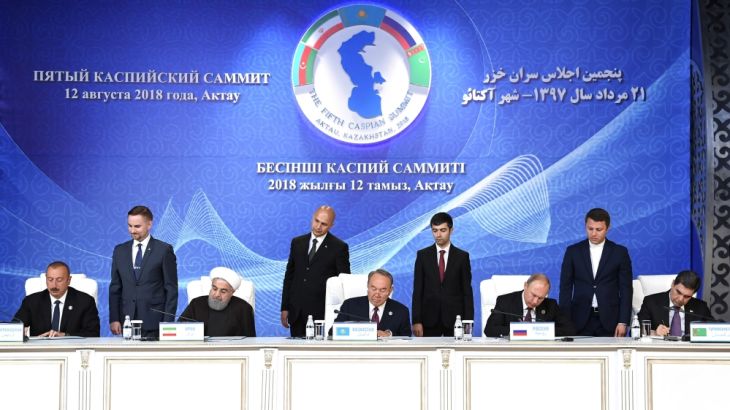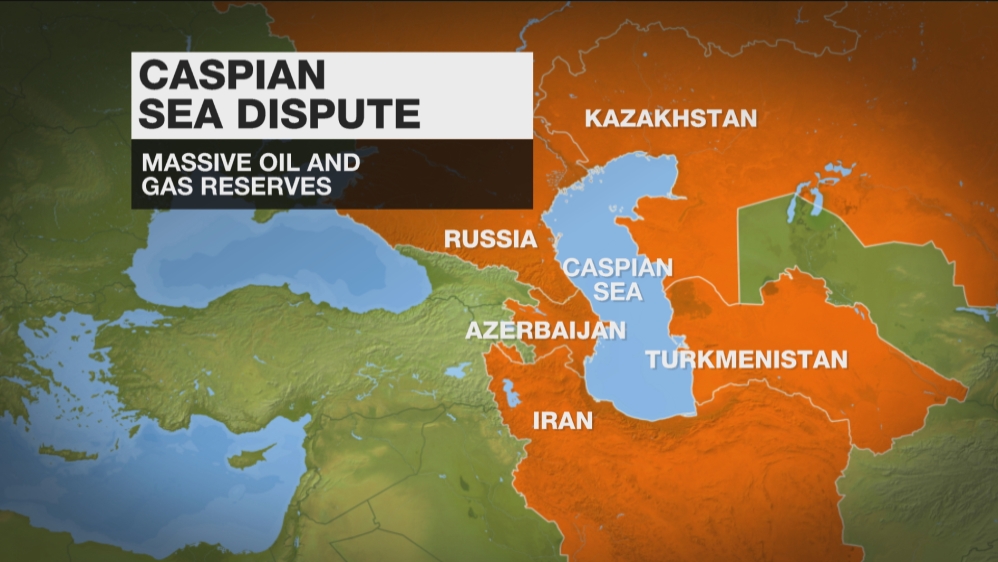Five-nation deal paves way for tapping Caspian riches
Five states sharing Caspian shoreline sign deal on legal status of inland body of water, agreeing to keep it exclusive.

The leaders of Russia, Kazakhstan, Iran, Turkmenistan and Azerbaijan have signed a landmark deal on the legal status of the resource-rich Caspian Sea, taking a big step towards resolving 22 years of dispute with the prospect of massive financial gains.
The five nations sharing the Caspian coastline agreed in the Kazakh city of Aktau on Sunday to treat the largest inland body of water in the world as a lake and a sea at the same time.
Defining it a lake would mean the Caspian should be divided equally among the five countries. But if it’s a sea, then each state gets a share in proportion to the length of its shoreline.
“The crux of the problem was: Could you call the Caspian Sea a lake or is it a sea? This agreement says that it is not quite one and not quite the other, so there are going to be different rules applied to the surface of the water to those applied to the seabed,” said Al Jazeera’s Rory Challands, reporting from Russia‘s capital, Moscow.
He added that the signatories had yet to decide who exactly gets what, but they did agree on turning the area into “a lockout zone, exclusive to the countries that share its shoreline”.
“No other power is going to be allowed to have any military presence there. So the United States, Europe, NATO, China, they are all out of it,” he said.
Huge potential
The Caspian – bigger than both the North and Baltic Seas in volume – has a huge financial potential.
It is believed to have reserves of 48 billion barrels of oil – more than Nigeria or the US – and 8.3 trillion cubic metres of natural gas – roughly the same as Saudi Arabia.
The Caspian is also an important source of one of the world’s most expensive delicacies – caviar. A kilogram can fetch up to $25,000.

The dispute began with the fall of the Soviet Union which had had a clearly defined Caspian border with Iran. In negotiations with post-Soviet nations, Tehran has insisted on either splitting the sea into five equal parts or jointly developing all of its resources.
None of its neighbours agreed to those proposals and three of them – Russia, Kazakhstan and Azerbaijan – effectively split the northern Caspian between each other using median lines.
Azerbaijan, however, has yet to agree on how to divide several oil and gas fields with Iran and Turkmenistan, including the Kapaz/Serdar field with reserves of about 620m barrels of oil.
The three countries have tried to develop the disputed fields while at times using warships to scare off contractors hired by other sides.
As a result, none of the disputed projects has made much progress.